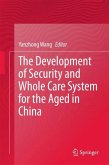This book is an up-to-date critical examination of schooling in Japan by an expert in this field. It focuses on developments in the last two decades, with a particular interest in social justice. Japan has experienced slow economic growth, changed employment practices, population decline, an aging society, and an increasingly multi-ethnic population resulting from migration. It has faced a call to respond to the rhetoric of globalization and to concerns in childhood poverty in the perceived affluence. In education we have seen developments responding to these challenges in national and local educational policies, as well as in school-level practices.
What are the most significant developments in schooling of the last two decades? Why have these developments emerged, and how will they affect youth and society as a whole? How can we best interpret social justice implications of these developments in terms of both distributive justice and the politics of difference? To what extent have the shifts advanced the interests of disadvantaged groups? This book shows that, compared to three decades ago, the system of education increasingly acknowledges the need to address student diversity of all kinds, and delivers options that are more varied and flexible. But interest in social justice in education has tended to centre on the distribution of education (who gets how much of schooling), with fewer questions raised about the content of schooling that continues to advantage the already advantaged.
Written in a highly accessible style, and aimed at scholars and students in the fields of comparative education, sociology of education and Japanese studies, this book illuminates changing policies and cumulative adjustments in the daily practice of schooling, as well as how various groups in society make sense of these changes.
What are the most significant developments in schooling of the last two decades? Why have these developments emerged, and how will they affect youth and society as a whole? How can we best interpret social justice implications of these developments in terms of both distributive justice and the politics of difference? To what extent have the shifts advanced the interests of disadvantaged groups? This book shows that, compared to three decades ago, the system of education increasingly acknowledges the need to address student diversity of all kinds, and delivers options that are more varied and flexible. But interest in social justice in education has tended to centre on the distribution of education (who gets how much of schooling), with fewer questions raised about the content of schooling that continues to advantage the already advantaged.
Written in a highly accessible style, and aimed at scholars and students in the fields of comparative education, sociology of education and Japanese studies, this book illuminates changing policies and cumulative adjustments in the daily practice of schooling, as well as how various groups in society make sense of these changes.
'Okano sets out to examine official policies in relation to equality and meritocracy in the Japanese education system, and then reviews those policies against the actual experience of a diverse range of minority social groups-by gender, class, region, ethnicity, language, cultural background, migrant experience, and other special needs. In the process, she provides the best overview of Japanese education since she co-published, back in 1999, her much-praised volume, Education in Contemporary Japan: Diversity and Inequality.'
'Perhaps the greatest strength of her book, however, lies in how Kaori Okano analyses this range of reforms. She describes them as collectively presenting a 'pragmatic package' that accommodates demands from four main directions: neoliberals who want greater choice and accountability; neoconservatives who want a return to traditional values; humanists who want more student-centred learning; and social justice advocates who want more attention paid to marginalized groups. Given these competing voices, Okano concludes that the sum of the reforms is actually always likely to be considerably less than the individual parts: 'the basic structure, mechanisms, and content of schooling have not changed radically... developments are best understood as "adjustments" to the existing system and practices' (11)'.
Professor Roger Goodman, University of Oxford, Social Science Japan, 2024, https://doi.org/10.1093/ssjj/jyae019
The 1999 book by Okano and Tsuchiya soon became a must-read text for anyone interested in Japanese education. There can be no question that Kaori Okano's new volume will also gain that status. The thorough and well-presented coverage of both national policy and local practice that has taken place over the last two decades makes this essential reading for scholars and students in Japan studies as well as comparative education.
Professor Robert Aspinall, Doshisha University, Japan, Journal of Japanese Studies, 48(2), pp.440-445. 2022, https://doi.org/10.1353/jjs.2022.0049
"Her analytical lens, which intersects micro and macro levels, provides a broad, yet nuanced picture of how Japanese education has responded to the increasing diversity and inequality in society".
Dr. Misako Nukaga, The University of Tokyo. Review in International Studies in Sociology of Education. DOI: 10.1080/09620214.2021.2006747
"Education and Social Justice in Japan offers fresh insights into an education system that has undergone some significant shifts over the past two decades. In engaging and accessible language, Kaori Okano illustrates how the system has responded to growing pressure to promote social justice in schools. [...] This book should satisfy readers who focus on Japanese education as well as those interested in topics such as globalisation, social justice, inequality and multicultural education."
Professor Christopher Bjork, Vassar College, the US. Review in Asian Studies Review. DOI: 10.1080/10357823.2021.1958708
"The author convincingly demonstrates that while recent attempts to reform education may have extended school choice and school autonomy, created alternative ways and opportunities to access higher levels of education, and reduced the achievement gap predetermined by socioeconomic status, they are at the same time failing to significantly reduce inequality in educational opportunities."
Dr. Steve R. Entrich, University of Potsdam. Review in International Review of Education. DOI: 10.1007/s11159-021-09926-6
"Okano suggests that difference and diversity have become more valued and accommodated over the last decades, allowing "more students to participate longer in schooling" (175). However, relatively little has changed in terms of diversifying the content of schooling. Nor have affirmative action programmes found favour. The approach to social justice in Japanese education is still overwhelmingly about seeking to ensure that all children get the same amounts of the same educational content, regardless of their social group. [...] Inevitably, specialists on this inherently controversial field may disagree with some of [Okano's] analyses or conclusions. However, none will fail to be impressed by the combination of scope, detail, and judiciousness that make [this book] an essential reference on its subject."
Dr. Peter Cave, University of Manchester. Review in Contemporary Japan. DOI: 10.1080/18692729.2021.1999885
"It provides an overview of Japanese education from the early pre-modern era to the current reform initiative in 2019. More importantly, the book adds new perspectives of social justice in education to the current scholarship on Japanese education.[...] The book is very informative, easy to read, and can be assigned to undergraduate courses. This is a welcome addition to Japanese studies scholarship."
Akihiro Ogawa, The University of Melbourne, Parkville, Pacific Affairs: Volume 95, No. 3
'The fascinating sixth chapter is a great example of this approach - focusing on a specific feature of Japanese schools (compulsory lunches) and how it illustrates broader trends in the education system. As Okano herself writes, this is a new topic to many in English-language scholarship on Japan and this section neatly displays how the back and forth between different stakeholders impacts schooling. Beginning as a way to keep poor students fed, the compulsory school lunch system came to incorporate aspects of nationalism (eat local, appreciate Japanese food culture) and to be seen as a way to socialise students (learn to make friends, improve table manners). The inclusion of the author's first-hand accounts of lunch times in Japanese schools, and the chance to 'zoom in' tightly on this issue also contextualises the information we learn in the previous chapter on poverty; helping to anchor some of that macro data to children's personal experiences on the micro level. Little details, such as many schools abolishing meal fees to avoid poor children feeling self-conscious about their circumstances, will stick in the minds of readers as examples of progress made towards social justice'.
Dr. Kara Juul, Harvard University, Japan Forum, 34(2), 275-277, 2022, https://doi.org/10.1080/09555803.2022.2056229
'In my reading, the key contribution to this book is thus methodological-how it builds on inductive observation and weaves it with broader historical and nomothetic data to show differing voices and how their speech acts construct social justice. The result of that methodology is an end view of social justice that is viscerally demonstrated to be nuanced, internally plural, and radically constructed. Instead of heeding the clarion call of some divined idea of social justice, deducing its myriad implications, and mounting a polemic on how this should resound throughout the realities of education, she turns this approach on its head. Japan, with its long history and its currently competing interest groups, possesses its own plurality of voices on social justice'.
Dr. Anton Sevilla-Liu, Kyushu University, International Education Journal: Comparative Perspectives, 21(1), 2022, https://openjournals.library.sydney.edu.au/IEJ/issue/view/1122
'.. She concludes that there have been more measures to help the participation of children from low income and migrant families in schooling. These have occurred through local governments and community based organizations as well as through the Act to Counter Childhood Poverty (2013)'.
Professor John Miller, University of Toronto (OISE), Japanese Studies, 43(1), 2023, https://doi.org/10.1080/10371397.2023.2191840
'Education and Social Justice in Japan, the sequel to a 1999 study, Education in Contemporary Japan (co-authored by Okano and Tsuchiya), analyses developments since Japan's 'Lost Decade' of the 1990s. Okano assesses how far recent educational change has tended to advance the cause of 'social justice'. Her verdict, delivered in highly readable prose, is that while incremental progress has occurred in some areas, much change may remain largely 'cosmetic' and 'designed to ensure that the current system, which favours the advantaged, can continue'.
Professor Edward Vickers, Kyushu University, Educational Studies in Japan: International Yearbook 2023, https://doi.org/10.7571/esjkyoiku.17.139
'..It particularly highlights the role of local governments and non-governmental stakeholders in accommodating the needs of the socially, economically, and culturally disadvantaged. As Japan grapples with diversity, poverty, and imbalances in its education system, Okano's review of government reforms, local initiatives, and implementations provides a nuanced understanding of the transformation and diversification of the traditional homogeneous society'.
Dr. Jin Liu, Tohoku University, Comparative Education, 60(4), 2024, https://doi.org/10.1080/03050068.2024.2400445
'Perhaps the greatest strength of her book, however, lies in how Kaori Okano analyses this range of reforms. She describes them as collectively presenting a 'pragmatic package' that accommodates demands from four main directions: neoliberals who want greater choice and accountability; neoconservatives who want a return to traditional values; humanists who want more student-centred learning; and social justice advocates who want more attention paid to marginalized groups. Given these competing voices, Okano concludes that the sum of the reforms is actually always likely to be considerably less than the individual parts: 'the basic structure, mechanisms, and content of schooling have not changed radically... developments are best understood as "adjustments" to the existing system and practices' (11)'.
Professor Roger Goodman, University of Oxford, Social Science Japan, 2024, https://doi.org/10.1093/ssjj/jyae019
The 1999 book by Okano and Tsuchiya soon became a must-read text for anyone interested in Japanese education. There can be no question that Kaori Okano's new volume will also gain that status. The thorough and well-presented coverage of both national policy and local practice that has taken place over the last two decades makes this essential reading for scholars and students in Japan studies as well as comparative education.
Professor Robert Aspinall, Doshisha University, Japan, Journal of Japanese Studies, 48(2), pp.440-445. 2022, https://doi.org/10.1353/jjs.2022.0049
"Her analytical lens, which intersects micro and macro levels, provides a broad, yet nuanced picture of how Japanese education has responded to the increasing diversity and inequality in society".
Dr. Misako Nukaga, The University of Tokyo. Review in International Studies in Sociology of Education. DOI: 10.1080/09620214.2021.2006747
"Education and Social Justice in Japan offers fresh insights into an education system that has undergone some significant shifts over the past two decades. In engaging and accessible language, Kaori Okano illustrates how the system has responded to growing pressure to promote social justice in schools. [...] This book should satisfy readers who focus on Japanese education as well as those interested in topics such as globalisation, social justice, inequality and multicultural education."
Professor Christopher Bjork, Vassar College, the US. Review in Asian Studies Review. DOI: 10.1080/10357823.2021.1958708
"The author convincingly demonstrates that while recent attempts to reform education may have extended school choice and school autonomy, created alternative ways and opportunities to access higher levels of education, and reduced the achievement gap predetermined by socioeconomic status, they are at the same time failing to significantly reduce inequality in educational opportunities."
Dr. Steve R. Entrich, University of Potsdam. Review in International Review of Education. DOI: 10.1007/s11159-021-09926-6
"Okano suggests that difference and diversity have become more valued and accommodated over the last decades, allowing "more students to participate longer in schooling" (175). However, relatively little has changed in terms of diversifying the content of schooling. Nor have affirmative action programmes found favour. The approach to social justice in Japanese education is still overwhelmingly about seeking to ensure that all children get the same amounts of the same educational content, regardless of their social group. [...] Inevitably, specialists on this inherently controversial field may disagree with some of [Okano's] analyses or conclusions. However, none will fail to be impressed by the combination of scope, detail, and judiciousness that make [this book] an essential reference on its subject."
Dr. Peter Cave, University of Manchester. Review in Contemporary Japan. DOI: 10.1080/18692729.2021.1999885
"It provides an overview of Japanese education from the early pre-modern era to the current reform initiative in 2019. More importantly, the book adds new perspectives of social justice in education to the current scholarship on Japanese education.[...] The book is very informative, easy to read, and can be assigned to undergraduate courses. This is a welcome addition to Japanese studies scholarship."
Akihiro Ogawa, The University of Melbourne, Parkville, Pacific Affairs: Volume 95, No. 3
'The fascinating sixth chapter is a great example of this approach - focusing on a specific feature of Japanese schools (compulsory lunches) and how it illustrates broader trends in the education system. As Okano herself writes, this is a new topic to many in English-language scholarship on Japan and this section neatly displays how the back and forth between different stakeholders impacts schooling. Beginning as a way to keep poor students fed, the compulsory school lunch system came to incorporate aspects of nationalism (eat local, appreciate Japanese food culture) and to be seen as a way to socialise students (learn to make friends, improve table manners). The inclusion of the author's first-hand accounts of lunch times in Japanese schools, and the chance to 'zoom in' tightly on this issue also contextualises the information we learn in the previous chapter on poverty; helping to anchor some of that macro data to children's personal experiences on the micro level. Little details, such as many schools abolishing meal fees to avoid poor children feeling self-conscious about their circumstances, will stick in the minds of readers as examples of progress made towards social justice'.
Dr. Kara Juul, Harvard University, Japan Forum, 34(2), 275-277, 2022, https://doi.org/10.1080/09555803.2022.2056229
'In my reading, the key contribution to this book is thus methodological-how it builds on inductive observation and weaves it with broader historical and nomothetic data to show differing voices and how their speech acts construct social justice. The result of that methodology is an end view of social justice that is viscerally demonstrated to be nuanced, internally plural, and radically constructed. Instead of heeding the clarion call of some divined idea of social justice, deducing its myriad implications, and mounting a polemic on how this should resound throughout the realities of education, she turns this approach on its head. Japan, with its long history and its currently competing interest groups, possesses its own plurality of voices on social justice'.
Dr. Anton Sevilla-Liu, Kyushu University, International Education Journal: Comparative Perspectives, 21(1), 2022, https://openjournals.library.sydney.edu.au/IEJ/issue/view/1122
'.. She concludes that there have been more measures to help the participation of children from low income and migrant families in schooling. These have occurred through local governments and community based organizations as well as through the Act to Counter Childhood Poverty (2013)'.
Professor John Miller, University of Toronto (OISE), Japanese Studies, 43(1), 2023, https://doi.org/10.1080/10371397.2023.2191840
'Education and Social Justice in Japan, the sequel to a 1999 study, Education in Contemporary Japan (co-authored by Okano and Tsuchiya), analyses developments since Japan's 'Lost Decade' of the 1990s. Okano assesses how far recent educational change has tended to advance the cause of 'social justice'. Her verdict, delivered in highly readable prose, is that while incremental progress has occurred in some areas, much change may remain largely 'cosmetic' and 'designed to ensure that the current system, which favours the advantaged, can continue'.
Professor Edward Vickers, Kyushu University, Educational Studies in Japan: International Yearbook 2023, https://doi.org/10.7571/esjkyoiku.17.139
'..It particularly highlights the role of local governments and non-governmental stakeholders in accommodating the needs of the socially, economically, and culturally disadvantaged. As Japan grapples with diversity, poverty, and imbalances in its education system, Okano's review of government reforms, local initiatives, and implementations provides a nuanced understanding of the transformation and diversification of the traditional homogeneous society'.
Dr. Jin Liu, Tohoku University, Comparative Education, 60(4), 2024, https://doi.org/10.1080/03050068.2024.2400445








